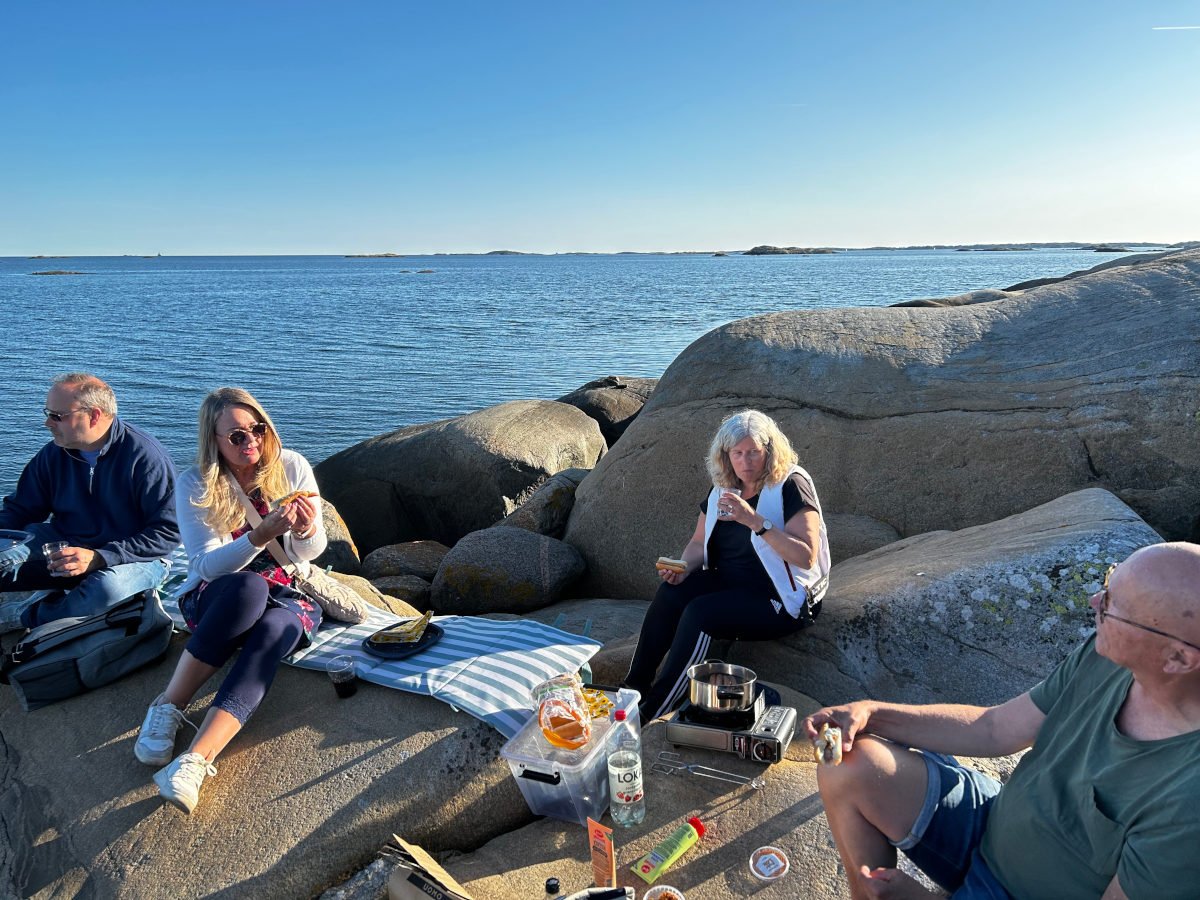When people in the US, UK or Ireland make speeches, give presentations, or speak in meetings, they tend to add a bit of levity to what they say, drop in the odd joke, a broad smile, try to win over the audience. In Sweden, this is an optional extra, if that.
“How could she show such a lack of concern for her audience?” I found myself thinking at a recent event in Malmö as one of the attendants explained a project with the municipality with relentless seriousness. “Why is she making absolutely zero effort to be engaging?”
It was only when I looked at the others in the room, all waiting patiently for her to have her say, that I realised that what I, as a Brit, see as tediousness might result from the cultural rules around public discussions in Sweden, to the country’s much-vaunted flat hierarchies.
“The focus is on facts rather than easing people into something with small talk or jokes, and the style is that you don’t show that much emotion,” confirms Anne Pihl, an expert on Swedish culture at Relocate to Sweden.
“Generally speaking, it’s considered better to hold yourself back and keep your voice lowered, rather than bring the energy and enthusiasm some other cultures would have.”
She argues this is partly because Swedes simply have less need to win audiences’ attention: the country’s flat hierarchies mean that everyone has the right to give their opinion, to communicate their thoughts, the flip side of which is that everyone has a duty to listen.
“You don’t have to fight for airspace in the same way. It’s rude to interrupt. You have to wait until a person has finished and said their piece,” Pihl, who came to Sweden from Ireland, believes. “So they’re not expecting anyone else to chime in.”
In Anglo-Saxon cultures – as will be clear to anyone who has witnessed the cacophony of the UK parliament – this is much less the case.
This can have advantages: people tend to make more effort to make what they say stand out, to craft their speeches in advance, and, yes, make more jokes (for those at the top of the hierarchy, obviously, this does not apply, or at least the jokes don’t have to be any good).
But does it also make speakers in countries with more of a focus on entertaining their colleagues leave out information and context that is important, but, well, a bit boring?
LEARN ABOUT SWEDEN:
- Ten rules for thriving in a Swedish meeting
- Are Swedes funny? Explaining the many types of Swedish jokes
Sofi Tegsveden Deveaux, an expert on intercultural communication at Bee Swedish, believes Swedes can be reluctant to come across as too funny, as this might be seen as seeking to outshine colleagues.
“It might certainly be related to equality: telling jokes is about intelligence, and when you crack a good joke that only half of your colleagues understand, it makes it obvious that some are stupider than others,” she says.
The same, she argues, might go for presentations that show up colleagues in other ways.
“I know of many cases where presentations have been considered ‘too good’, ‘too detailed’, or ‘too serious’ and hence unwelcome. In general, what Swedes want from their colleagues more than anything else is a ‘positive attitude’.”
While this reluctance to stand out may seem on the surface to be a negative quality, the plus side is that less confident and more junior people feel freer to address their colleagues, meaning they are more likely to share information and that their ideas are more likely to get an airing.
It’s part of what makes Sweden’s flat hierarchy function.
One aspect of public speaking where Swedes do tend to be extremely conscious of their audience is in not taking up more than their fair share of time.
Yes, you have a right to have your say, but so does everyone else. That means that if there are ten people at a 30-minute meeting, each person there probably only has two minutes to get their point across.
According to Pihl, this is another part of the explanation for Swedes’ reluctance to waste time on unnecessary sweeteners.
“It’s about using as few words as possible, being concise and clear – so a bit like the Ikea manual.”





 Please whitelist us to continue reading.
Please whitelist us to continue reading.
So working within a flat hierarchy enables a putative egalitarianism – then what? Who stands up and takes responsibility for what was discussed? It would seem to me that a flat hierarchy might make for pleasant work situations but that its secondary function
is to provide an alibi wherein nothing can happen; no change to be wrought; all responsibility and no actual care.
I’ve worked at big Swedish firms US firms (all with over 100K employees).
I think the Junior staff in the US firms have more say, more access to senior management, and more influence.
Whenever I see ‘rows of silent swedes’ listening to presentations – I see the strict hierarchy in action. It’s also “learned helplessness” (under the Swedish bureaucracies.) Much like the elephant with a thin rope around its ankle (google it).
J.